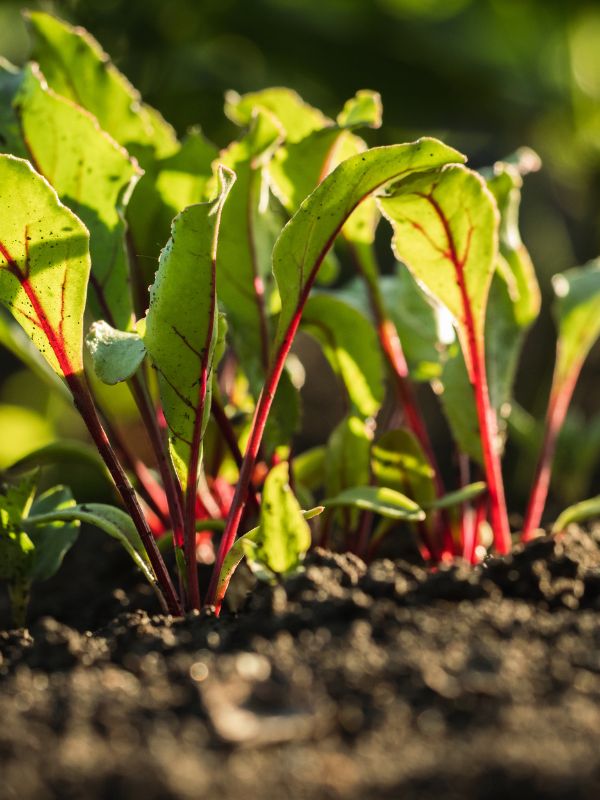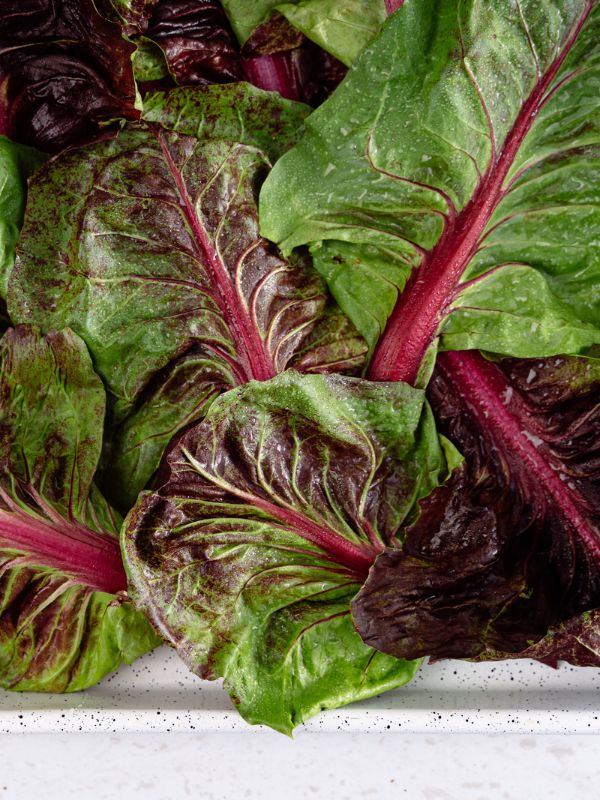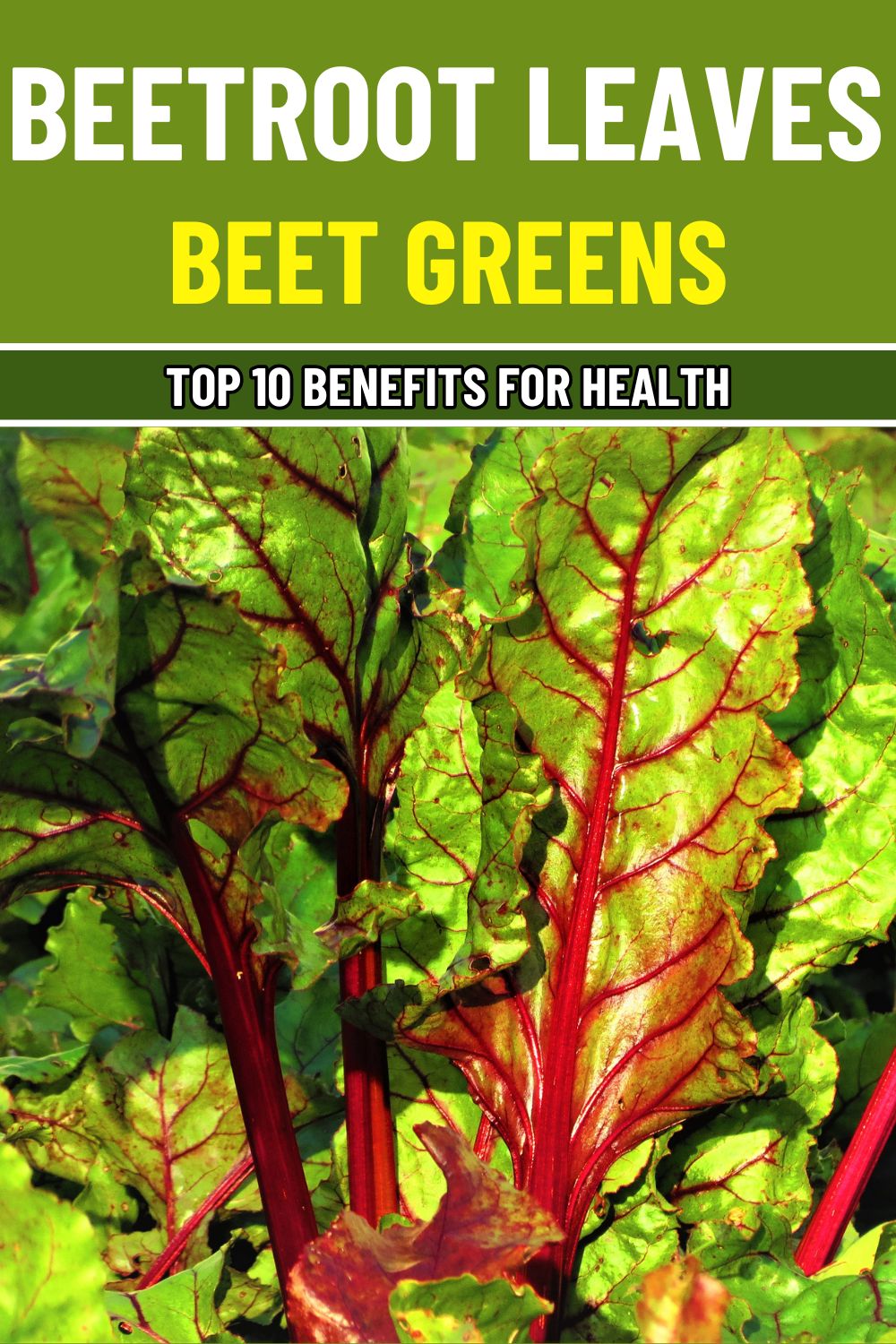Beetroot leaves, often overshadowed by their colorful roots, are a hidden gem in the world of nutrition. Packed with essential vitamins, minerals, and antioxidants, these leafy greens offer a multitude of health benefits.
Adding beetroot leaves to your daily diet is an easy and effective way to transform your overall well-being.
Whether you’re looking to boost your immune system, improve heart health, or enhance your skin, beetroot leaves are an excellent addition to your meals.
#1. Boosts Immune Function
Beetroot leaves are rich in Vitamin C. So, regular consumption of beetroot leaves stimulates the production of white blood cells, essential for fighting infections.
Studies have shown that Vitamin C can strengthen the immune system, helping your body ward off colds and flu more effectively.
According to the National Institutes of Health, Vitamin C also acts as a powerful antioxidant, reducing oxidative stress and accelerating recovery after illness.

#2. Improves Digestive Health
The fiber in beet greens adds bulk to stools, preventing constipation and ensuring regular bowel movements. It also promotes a healthy gut microbiome by nourishing beneficial bacteria.
As stated by the Harvard T.H. Chan School of Public Health, fiber plays a significant role in reducing the risk of gastrointestinal issues, such as bloating, IBS, and digestive discomfort.
#3. Enhances Heart Health
Beetroot leaves contain potassium and magnesium, both of which play key roles in maintaining a healthy heart.
Potassium helps relax blood vessels, reducing the risk of high blood pressure, while magnesium improves blood circulation and strengthens the heart muscle.
Additionally, the nitrates found in beet greens support cardiovascular health by improving blood vessel function, promoting healthy blood flow, and reducing strain on the heart.

#4. Supports Healthy Bones
Beetroot leaves are packed with essential nutrients like calcium, phosphorus, and Vitamin K, all of which are crucial for maintaining strong bones.
Calcium and phosphorus work together to support bone structure, while Vitamin K enhances calcium absorption and bone mineralization.
According to the American Journal of Clinical Nutrition, these nutrients can help prevent osteoporosis, a condition characterized by brittle bones, and promote overall bone health.

#5. Aids in Detoxification
Beetroot leaves contain chlorophyll, a compound known for its detoxifying properties. Chlorophyll helps cleanse the liver by facilitating the elimination of toxins from the body.
Furthermore, chlorophyll supports kidney function, promoting the removal of waste products.

6. Promotes Better Vision
Beetroot leaves are rich in beta-carotene, converted to Vitamin A in the body. Vitamin A is essential for maintaining healthy vision and preventing conditions like night blindness.
Vitamin A is critical in preventing eye diseases such as cataracts and macular degeneration.

#7. Boosts Energy Levels
Iron is another key component of beetroot leaves, which helps produce hemoglobin and red blood cells that transport oxygen throughout the body.
The Mayo Clinic explains that iron deficiency can lead to fatigue and anemia, making beetroot leaves an excellent choice for boosting energy.
By improving oxygen delivery to your cells, beetroot leaves can increase your stamina and reduce feelings of tiredness.
#8. Supports Weight Management
Beetroot leaves are low in calories but high in fiber, making them an ideal choice for anyone looking to maintain a healthy weight. The fiber content in beetroot leaves helps you feel full longer, curbing unnecessary snacking.
The American Journal of Clinical Nutrition reports that high-fiber foods are crucial for weight management as they regulate appetite and prevent overeating.

#9. Reduces Inflammation
Beetroot leaves are rich in antioxidants like betalains and flavonoids, which have potent anti-inflammatory effects.
Chronic inflammation is linked to numerous health conditions, including arthritis, heart disease, and autoimmune disorders.
These antioxidants help reduce inflammation, alleviate symptoms of conditions like arthritis, and promote joint health.
#10. Enhances Skin Health
The antioxidants in beetroot leaves help protect the skin from damage caused by free radicals, which are responsible for premature aging and the formation of wrinkles.
According to the Journal of Clinical Dermatology, beetroot leaves also benefit skin health by promoting healthy blood circulation, contributing to a glowing complexion.
The vitamins and minerals in these leaves nourish the skin from within, reducing signs of aging and promoting a more youthful appearance.

How to Incorporate Beetroot Leaves into Your Diet
- Salads: Toss fresh beetroot leaves into your salads for added crunch and nutrition.
- Smoothies: Blend beetroot leaves with fruits and other greens for a nutrient-packed smoothie.
- Soups and stews: Add chopped beetroot leaves to soups or stews for extra flavor and health benefits.
- Stir-fries: Sauté beetroot leaves with garlic and olive oil for a healthy side dish.
- Juices: Combine beetroot leaves with other vegetables and fruits for a detoxifying juice.

Cautions and Precautions
Beetroot leaves contain oxalates, which may contribute to kidney stone formation in susceptible individuals. If you have a history of kidney stones or are prone to them, it’s important to consume beetroot leaves in moderation.
Additionally, beetroot leaves are rich in Vitamin K, which plays a role in blood clotting. If you are on blood thinners, consult your healthcare provider before incorporating large amounts of beetroot leaves into your diet.
Disclaimer
This article is intended for informational purposes only and does not substitute professional medical advice.
Always consult with a healthcare provider before starting any new dietary regimen or using natural remedies, especially if you have underlying health conditions or are on medications.

What Happens to Your Body When You Add Beetroot Leaves to Your Daily Diet? 10 Remarkable Benefits
